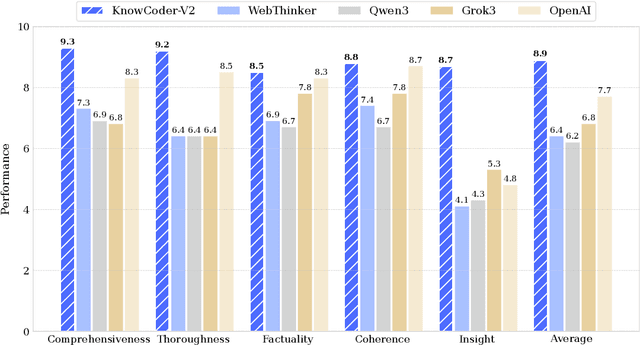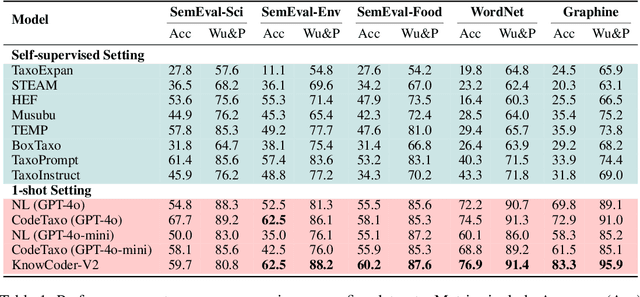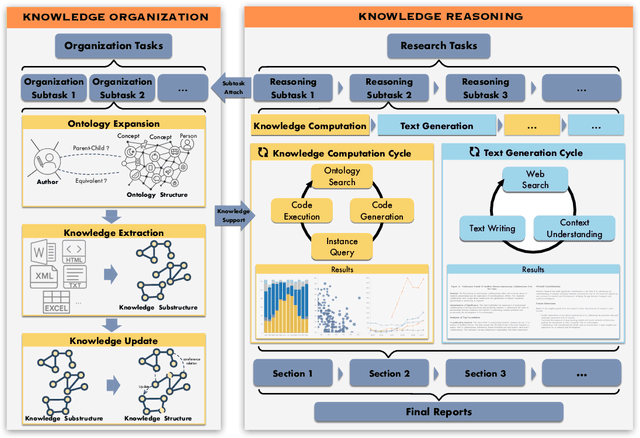Ruoyun He
KnowCoder-V2: Deep Knowledge Analysis
Jun 07, 2025



Abstract:Deep knowledge analysis tasks always involve the systematic extraction and association of knowledge from large volumes of data, followed by logical reasoning to discover insights. However, to solve such complex tasks, existing deep research frameworks face three major challenges: 1) They lack systematic organization and management of knowledge; 2) They operate purely online, making it inefficient for tasks that rely on shared and large-scale knowledge; 3) They cannot perform complex knowledge computation, limiting their abilities to produce insightful analytical results. Motivated by these, in this paper, we propose a \textbf{K}nowledgeable \textbf{D}eep \textbf{R}esearch (\textbf{KDR}) framework that empowers deep research with deep knowledge analysis capability. Specifically, it introduces an independent knowledge organization phase to preprocess large-scale, domain-relevant data into systematic knowledge offline. Based on this knowledge, it extends deep research with an additional kind of reasoning steps that perform complex knowledge computation in an online manner. To enhance the abilities of LLMs to solve knowledge analysis tasks in the above framework, we further introduce \textbf{\KCII}, an LLM that bridges knowledge organization and reasoning via unified code generation. For knowledge organization, it generates instantiation code for predefined classes, transforming data into knowledge objects. For knowledge computation, it generates analysis code and executes on the above knowledge objects to obtain deep analysis results. Experimental results on more than thirty datasets across six knowledge analysis tasks demonstrate the effectiveness of \KCII. Moreover, when integrated into the KDR framework, \KCII can generate high-quality reports with insightful analytical results compared to the mainstream deep research framework.
Predicting ICU In-Hospital Mortality Using Adaptive Transformer Layer Fusion
Jun 06, 2025



Abstract:Early identification of high-risk ICU patients is crucial for directing limited medical resources. We introduce ALFIA (Adaptive Layer Fusion with Intelligent Attention), a modular, attention-based architecture that jointly trains LoRA (Low-Rank Adaptation) adapters and an adaptive layer-weighting mechanism to fuse multi-layer semantic features from a BERT backbone. Trained on our rigorous cw-24 (CriticalWindow-24) benchmark, ALFIA surpasses state-of-the-art tabular classifiers in AUPRC while preserving a balanced precision-recall profile. The embeddings produced by ALFIA's fusion module, capturing both fine-grained clinical cues and high-level concepts, enable seamless pairing with GBDTs (CatBoost/LightGBM) as ALFIA-boost, and deep neuro networks as ALFIA-nn, yielding additional performance gains. Our experiments confirm ALFIA's superior early-warning performance, by operating directly on routine clinical text, it furnishes clinicians with a convenient yet robust tool for risk stratification and timely intervention in critical-care settings.
 Add to Chrome
Add to Chrome Add to Firefox
Add to Firefox Add to Edge
Add to Edge